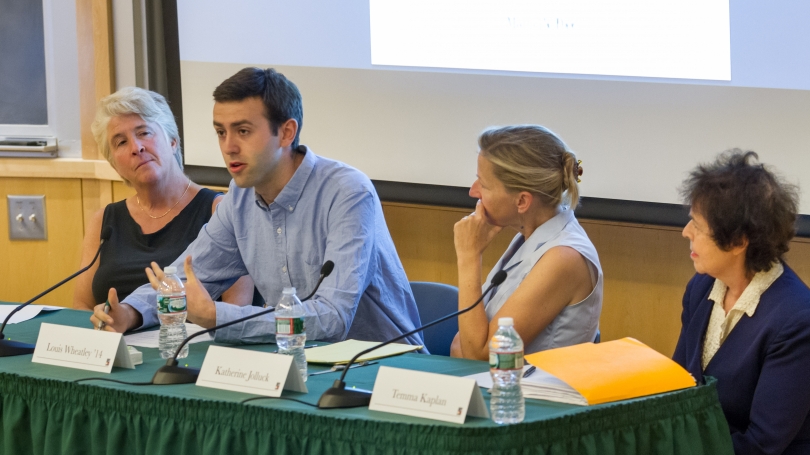The Chase Peace Prize is awarded to the best senior thesis or culminating project that treats the subject of war, conflict resolution, the prospects and problems of maintaining peace, or other related topics. The thesis or culminating project may fall within any of the divisions of the College. Successful topics might be:
- An analysis of the representation of war in art, literature, or music
- A historical or contemporary case study of a particular conflict
- The analysis of international institutions and their influence on peace promotion
- A philosophical or ethical analysis of war, either in general or in a specific case
- The study of the environmental causes and consequences of conflict
- A scientific study of weaponry and the impact of technological change on arms races
Submissions should be made in PDF format and may be made by the student or by a faculty member.
The first place winner will be awarded $2,000. Winners will be selected at the end of summer term following submission.
